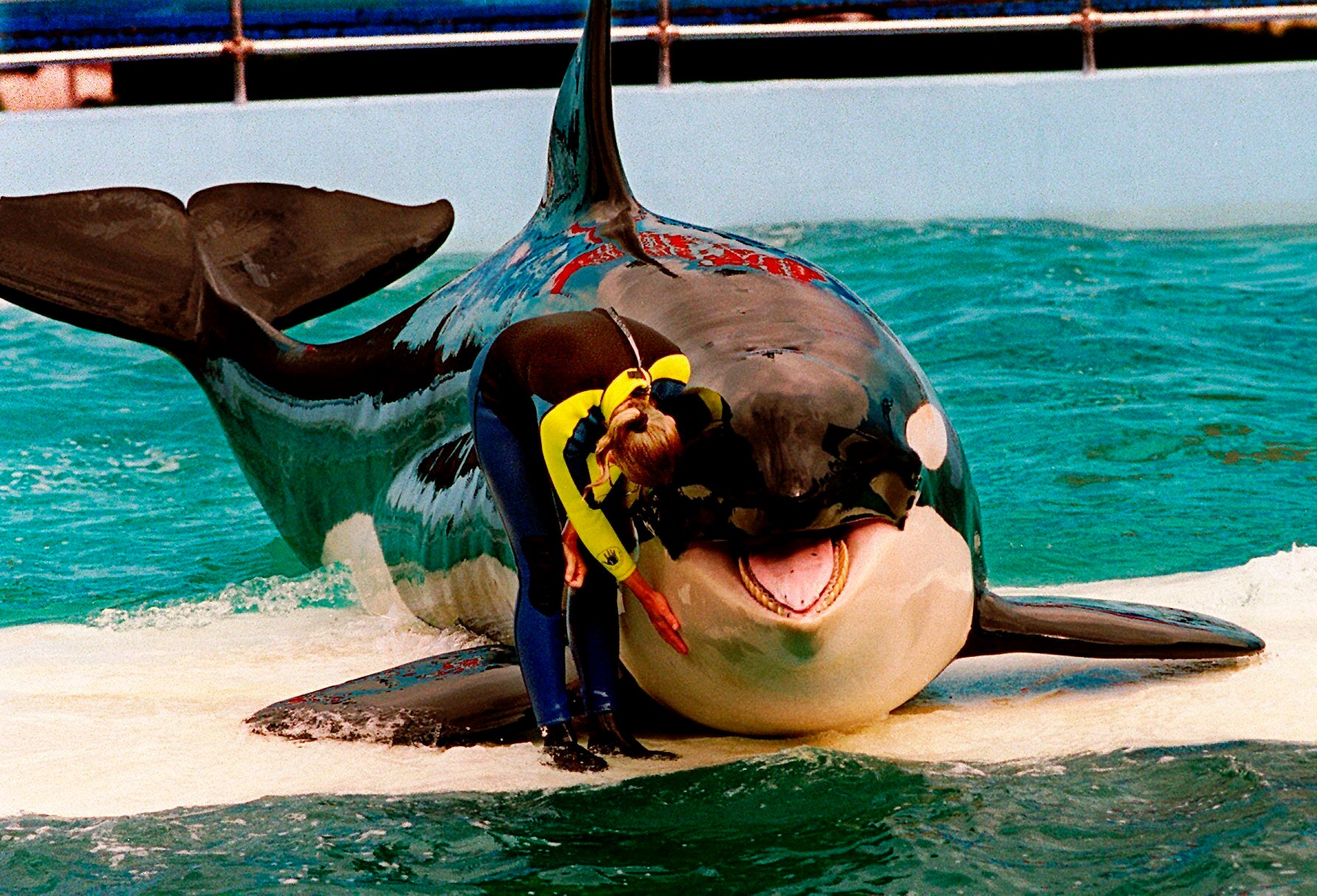Agreement in place to return Lolita the orca to the Pacific
An plan is in place to return Lolita, an orca that has lived at the Miami Seaquarium for more than 50 years, to her home waters in the Pacific Northwest

An unlikely coalition of a theme park owner, animal rights group and NFL owner-philanthropist announced Thursday that a plan is in place to return Lolita — an orca that has lived in captivity at the Miami Seaquarium for more than 50 years — to her home waters in the Pacific Northwest.
“I'm excited to be a part of Lolita's journey to freedom,” Indianapolis Colts owner Jim Irsay said during a news conference announcing the agreement. “I know Lolita wants to get to free waters.”
The time frame for moving the 57-year-old, 5,000-pound (2,267-kilogram) orca could be six to nine months or even longer, Irsay said. He added that he became part of the mission because “the story of Lolita is near and dear” to his heart.
Irsay is partnering with Eduardo Albor, who heads The Dolphin Company which owns the Seaquarium, and the nonprofit Friends of Lolita, co-founded by environmentalist Pritam Singh, to move Lolita from her marine park tank that measures 80 feet by 35 feet (24 meters by 11 meters) and is 20 feet (6 meters) deep.
Overall the mission will cost $15 million to $20 million, the group said.
The plan is to transport Lolita by plane to Pacific waters off Washington state, where she will initially swim inside a large net while trainers and veterinarians teach her how to catch fish, Irsay said.
The orca will be under 24-hour care until she acclimates to her new surroundings.
Lolita's caretakers at the Seaquarium are already preparing her for the journey, officials said.
The Dolphin Company took ownership of the park in 2021 and last year announced it would no longer stage shows with Lolita, under an agreement with federal regulators. The company operates some 27 other parks and habitats in Mexico, Argentina, the Caribbean and Italy.
Lolita was captured in Penn Cove off the coast of Washington in 1970 when she was about 4 years old. She was initially called Tokitae, or Toki.
During the 1960s and 1970s, dozens of Pacific Northwest whales were caught for display in marine theme parks. The whale-capture industry argued that there were many orcas in the sea and some could be sustainably caught.
Animal rights activists including People for the Ethical Treatment of Animals have long fought for Lolita to spend her final years back home in a controlled setting.
Activists often protest along the road that runs by the Seaquarium, which they've referred to as an “abusement park.” PETA says it doesn't want Lolita to suffer the same fate as her partner Hugo, who died in 1980 from a brain aneurysm after ramming his head repeatedly into the tank's walls.
Albor said Thursday that as his company was in the process of acquiring the Seaquarium, he and his daughter visited as tourists. He said his daughter became upset while watching Lolita's show, even as many other in the crowd were squealing in delight.
He said his daughter told him “his place is too small for Lolita” and made him promise to help the orca if his company bought the park.
“That touched me,” Albor said.
Miami-Dade County Mayor Daniella Levine Cava called the agreement historic, saying, “So many have hoped and prayed for this result for many, many years."
Irsay said many hurdles lie ahead including securing government permits and working out all the details of the move, but the deal announced Thursday is a first step toward freedom for Lolita.
""It has always been our commitment at The Dolphin Company that we place the highest priority on the well-being of the animals above all else," Albor said. “Finding a better future for Lolita is one of the reasons that motivated us to acquire the Miami Seaquarium.”
The Seaquarium opened in 1955 on Virginia Key east of downtown Miami. It features a variety of creatures including dolphins, sea lions, manatees, reef fish and sharks, and was the filming location for 88 episodes of the “Flipper” TV series as well as movies in the 1960s.
Bookmark popover
Removed from bookmarks